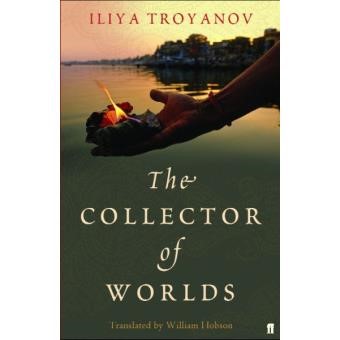Sir Richard Francis Burton (1821-1891) was a British diplomat, also an explorer, linguist, spy, and master of disguise. He has been described as “a human chameleon, someone who didn’t just take an interest in foreign cultures but breathed them in, soaking up everything that spoke to him far away from his English homeland.”
In his novel Iliya Troyanov takes three episodes from the life of this strange and brilliant man, who throughout his life constantly invented and reinvented himself. Burton lends himself perfectly to a work of biographical fiction – a popular genre, especially among modern European writers – given that his widow, upon his death, burned all of his private papers in an act of historical and literary vandalism. The real Burton went to India as a young officer, soon becoming a spy and explorer. Later he made the pilgrimage to Mecca, disguising himself as an Arab and risking execution if exposed. He set out to discover the source of the Nile with Speke, one of the epic journeys of nineteenth-century exploration. His translation of The Arabian Nights scandalised Victorian England because he refused to censor the erotic passages in the original Arabic version. He toook insane risks and collected languages as though his life depended on learning about people totally unlike himself. Troyanov does full justice to this advernturous man, bringing alive one of the great moments in the encounter between the West and other societies, especially the Islamic world. The Collector of Worlds has for this reason been described as a book for our times.
Iliya Troyanov was born in Bulgaria in 1965, but his family moved to West Germany to escape persecution when he was six years old. He grew up speaking German before again emigrating to Kenya in 1977 where he learned English. Troyanov, who has also written on freedom of expression and surveillance of citizens by government agencies in Germany, had in 2013 criticized the USA’s National Security Agency in his work. That same year, he was denied entry into the USA for undisclosed reasons, before representatives of P.E.N. and the Goethe-Institut intervened to overturn the ruling.
If you would like to buy this book please send me a message.

